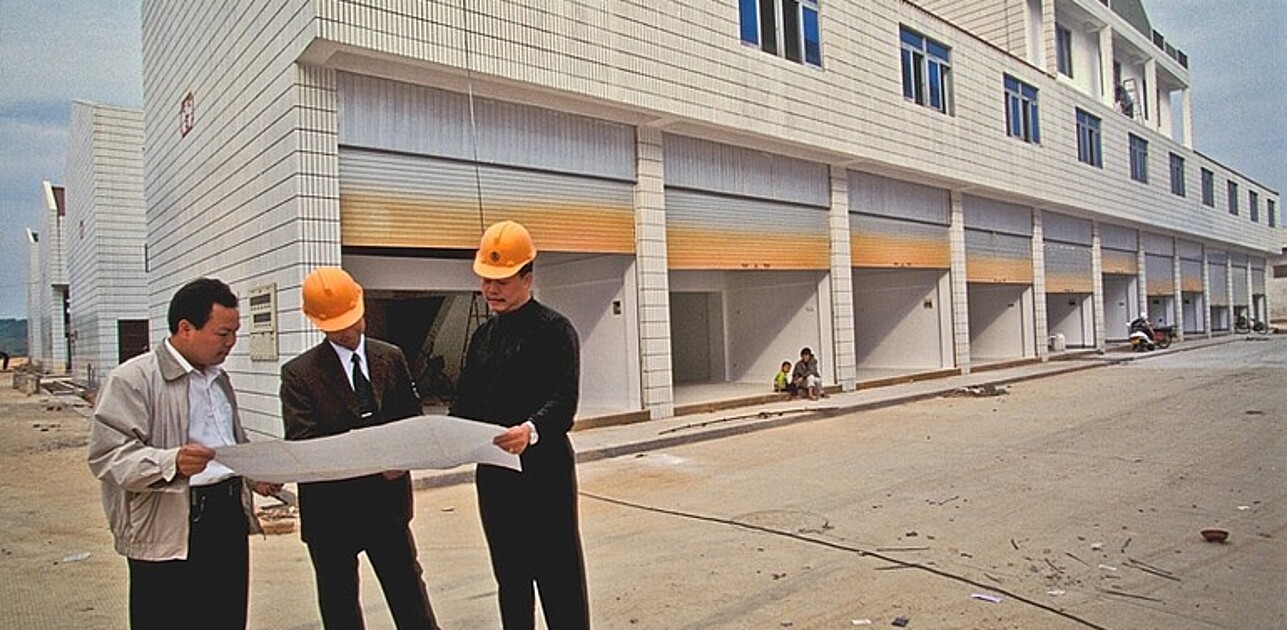

Blog: Tuesday, 21 June 2016
What are the main business differences between the Netherlands and China? Dutch projects progress more slowly than their Chinese equivalents because of highly formalised and recurring processes. But the Chinese care more about the speed of delivery and use less formal progress management. New research by Dr Ying Zhang, Associate Dean for China Business and Relations at Rotterdam School of Management, Erasmus University (RSM) reveals how Dutch and Chinese companies can best work together, after she investigated the role of national and organisational culture in the day to-day activities of multinational project teams.
Dr Ying Zhang found that the differences between Dutch and Chinese managers working on the same project are to do with people and processes rather than differences in economy and technology, which are almost identical in both countries. Cognition and approaches to project management are largely determined by perception and reflective perceived behaviour, shaped by two different national cultures, organisational cultures, and individual ’cultures’ as well as personal traits.
Field observations and interviews with industry representatives showed Zhang that the role of national culture is larger and more important than organisational culture in shaping people’s attitude and mindset in the process of project management. Companies with two completely different national backgrounds can work perfectly together when the organisational culture is more aligned.
Zhang’s findings show that there are a few differences in patterns between the Chinese and the Dutch in the project process:
The Dutch are more formalised in the project planning process and keep to pre-agreed planning, while the Chinese pay less attention to planning. Chinese managers execute projects at a fast pace, ‘learning by doing’ and with a trial-and-error approach. This means that the Chinese act more dynamically and efficiently in the execution stage. The Dutch spend a large part of time at the planning stage in order to try and prevent errors and mistakes later on in the execution phase of the project.
In terms of scope management and project promises, the Chinese seem to be quite flexible with project goals, which are subject to changes while the project is in execution. The Dutch are more determined to stick to the project goals formulated at the initiation of the project, and follow a more formalised process of scope management.
The Chinese are more focused than the Dutch on cost tracking in order to be competitive; sometimes this means sacrificing quality. As for scheduling and speed, the Chinese have a hierarchical governance structure, but a fast process of decision-making. The Dutch pay attention to cost and benefits management, and stick to tight quality control. The Dutch share a more co-operative structure, so the decision-making process can take longer.
The Chinese have a higher appetite for risk because of their entrepreneurial spirit, but risk management is not formalised. The Dutch are more risk-averse and spend more time on identifying risk beforehand, and have formalised risk management systems in place.
Open communications in Chinese hierarchical structures are not the norm; there’s a bigger gap between the top and bottom of the project management hierarchy than in the Dutch approach, which has a transparent communication system that is open to all members of the project team.
Chinese and Dutch approaches each have pros and cons. Zheng observes that a combination of both approaches may lead to situation that is beneficial for the performance of the project, and gives suggestions for using these differing national approaches to best advantage. She says the Chinese project managers’ strengths lay in incremental innovative projects and trial-and-error approach, while their Dutch counterparts are more comfortable in disruptive innovation projects, and are far more advanced in planning.
Interestingly, both cultures report plenty of satisfaction and projects are judged to perform well when people of both cultures work jointly on the same project. This satisfaction rating is even higher for Dutch managers with prior working experience in China when they partner with Chinese managers with prior experience of working with Dutch colleagues.
Zhang’s research is of critical significance for those individuals who work on cross-cultural projects in a global economy, and beneficial for organisations working cross-culturally. But organisations need to be aware of fundamental cultural differences and have a dynamic project management system in place. The study shows that people of opposite cultures – in this case Chinese and Dutch – can work complementarily together in a project-based environment and reap mutual benefits.
Singularity Academy


Science Communication and Media Officer
Rotterdam School of Management, Erasmus University (RSM) is one of Europe’s top-ranked business schools. RSM provides ground-breaking research and education furthering excellence in all aspects of management and is based in the international port city of Rotterdam – a vital nexus of business, logistics and trade. RSM’s primary focus is on developing business leaders with international careers who can become a force for positive change by carrying their innovative mindset into a sustainable future. Our first-class range of bachelor, master, MBA, PhD and executive programmes encourage them to become to become critical, creative, caring and collaborative thinkers and doers.
